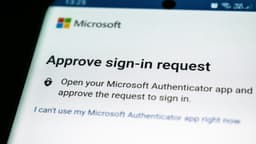How Can I Efficiently Handle Errors in PHP?
Errors in PHP are a common issue for developers. Knowing how to handle them can significantly enhance the reliability of your code. This article explores effective error handling strategies, including code examples.
Understanding Errors in PHP
In PHP, errors can be categorized into three main types:
-
Notices: Mild issues, such as using undefined variables. Notices do not stop script execution but should be addressed for proper code functionality.
-
Warnings: More severe problems that may impact your script's behavior, like using deprecated functions or files that cannot be found. Ignoring warnings can lead to unforeseen issues.
-
Fatal Errors: The most critical errors that result in immediate script termination. Causes can include syntax errors or attempting to use undefined functions. Managing fatal errors is vital to prevent application crashes.
Best Practices for Error Handling
Here are some effective practices for handling errors in your PHP code.
1. Use Try-Catch Blocks for Exception Handling
Using try-catch blocks allows you to catch exceptions thrown within your code. This approach helps you manage errors gracefully.
Php
2. Displaying Errors for Development Environment Only
In a development environment, displaying errors aids in quick issue resolution. Ensure that error messages do not appear in production to avoid security risks. Adjust PHP settings accordingly.
Php
3. Logging Errors to Files
Logging errors to files is essential for tracking issues in production. It allows you to analyze error messages without exposing sensitive information.
Php
4. Gracefully Handling Errors in Production
In production, handle errors gracefully. Instead of showing detailed error messages, implement custom error pages or notifications. This approach informs users while keeping detailed logs for analysis.
5. Error Reporting and Error Handling Functions
PHP offers functions like set_error_handler() and set_exception_handler() to customize error reporting. This customization can match your application's needs.
Php
6. Validating Input Data to Prevent Errors
Preventing errors is often better than handling them after they occur. Implement input validation by checking user input for expected formats and types.
Putting It All Together
Effective error handling in PHP combines prevention, testing, and robust strategies. Understanding error types, applying best practices, and utilizing PHP's built-in functions will enhance the reliability of your applications.
Errors are an integral part of development. Learning how to handle them effectively is a critical skill for PHP developers. Use these strategies in your projects to improve your error handling capabilities.












